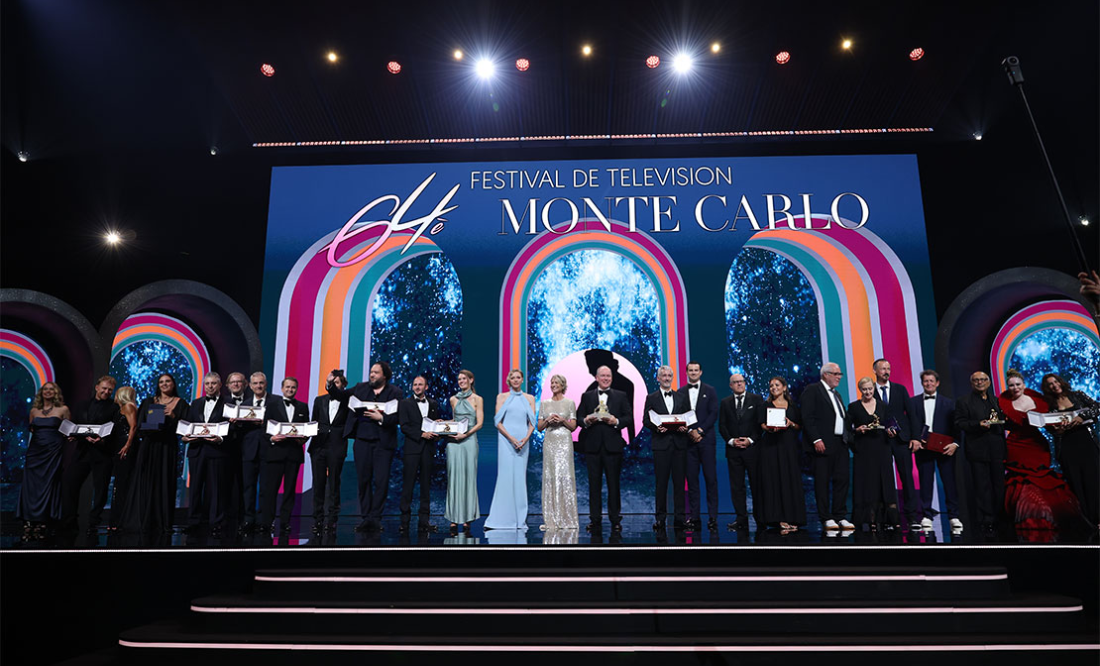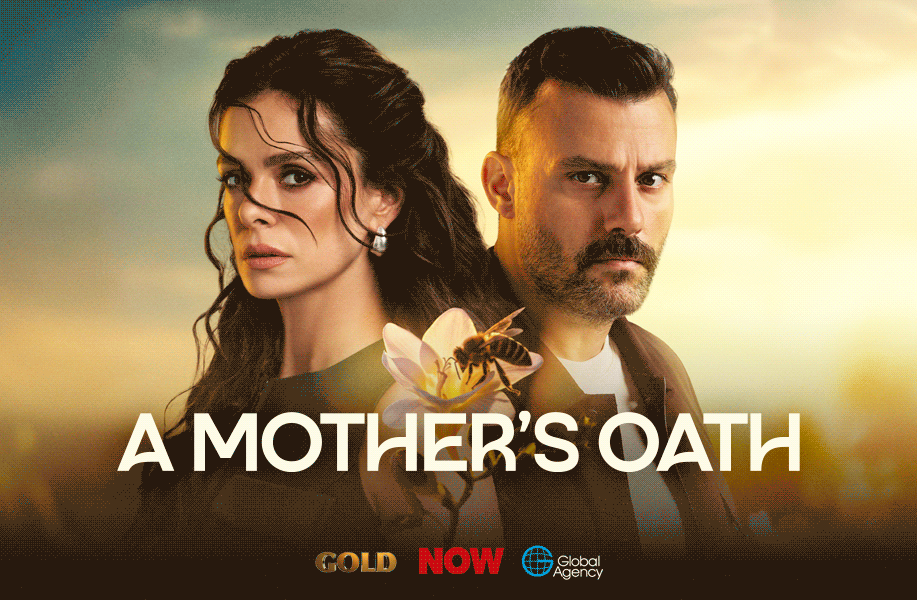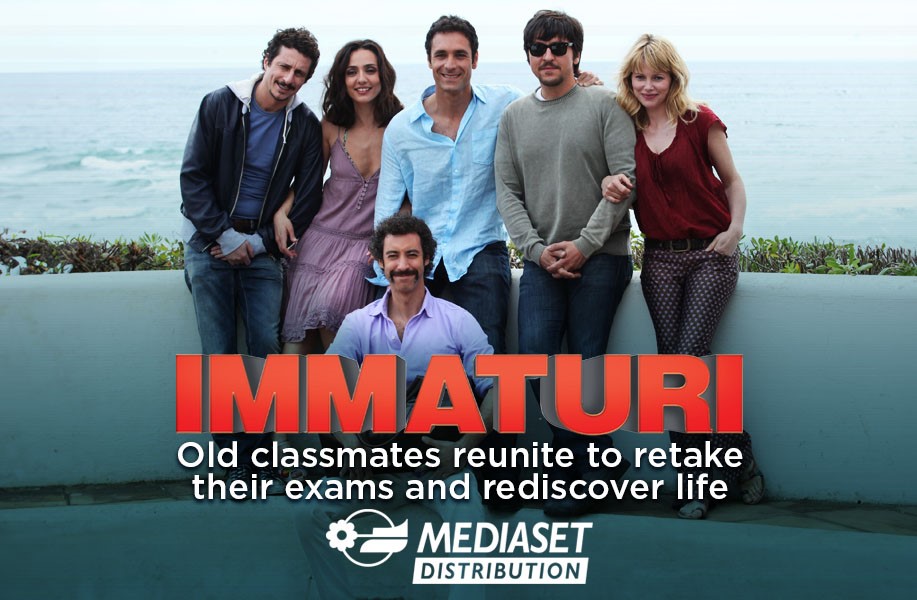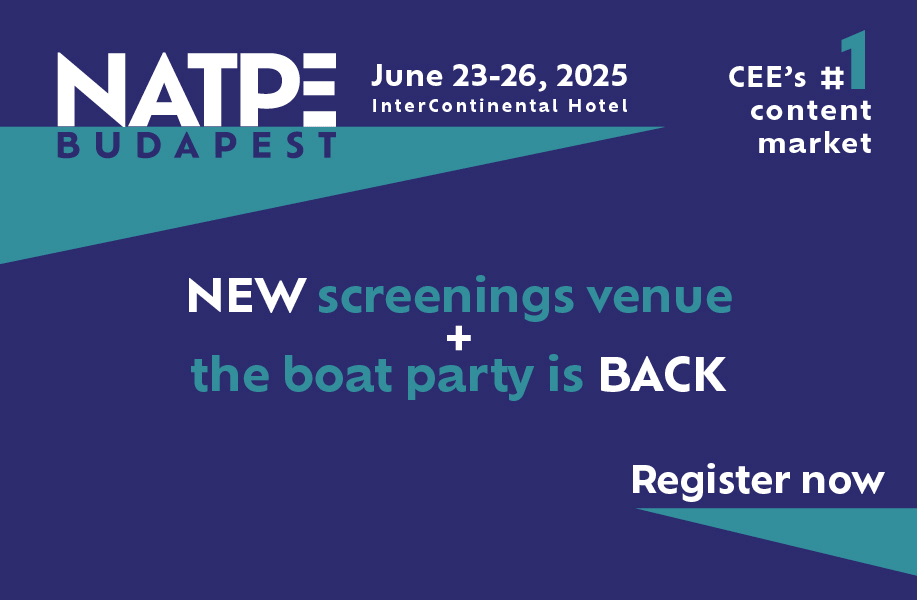Eighteen programs from twelve countries competed, including several international and world premieres. Highlights included the Crystal Nymph Award presented to Robin Wright by Prince Albert II, honoring her influential career spanning from “The Princess Bride” to “House of Cards”.
In addition, a Special Digital Award recognized French digital creator Squeezie for his innovation in native digital content, paving the way for the official launch of a new Digital Award category in 2026. Further productions awarded were “Rewilding Sharks” (Prince Rainier III Special Prize) for its environmental advocacy, “Children in the Fire” (AMADE Prize), and “L’Ange de Boutcha” (Monaco Red Cross Prize).
Beyond awards, the Festival featured 11 screenings, over 30 public events, and a robust Business Content program tackling industry topics such as AI, streaming, and co-productions. The inaugural “Tell Me A Story” pitch contest, in partnership with 1895 Films, crowned Bryant University’s Beau Shugarts (30 Days Offline) as its first winner.
Industry Insights at Monte-Carlo's Business Content Conference
As part of the 64th Monte-Carlo Television Festival, the Business Content Conference delivered a three day program of expert panels, masterclasses, and networking sessions, across which professionals tackled pressing topics shaping the global television industry:
The panel That’s (AI) Entertainment! captured the urgency and opportunity surrounding artificial intelligence in today’s media industry. Moderated by Michel Zgarka (Hitlab), the session featured Vanessa Shapiro (Nicely Entertainment), Toma de Matteis (France.tv Studios), and Leif Host Jensen (Inn University), who explored how AI is already reshaping the content pipeline.
The discussion moved beyond "if" AI will disrupt the industry — it already has. Shapiro described using AI across development and production, especially to cut costs. But she warned of ethical lines, like replacing background extras or actors entirely. “The spark of storytelling still belongs to the human creator,” she said.
Jensen, speaking from both academic and production experience, noted a generational divide. “Game students embrace AI. Film professionals fear it,” he said, urging creatives to adapt or risk irrelevance. He cited cost advantages of AI-driven visual effects, like replicating blockbuster-scale scenes at a fraction of the price.
De Matteis emphasized that AI can’t yet replace emotional storytelling. “Tools evolve — but the soul of storytelling remains human,” he said. He also warned about copyright risks, stressing that creators must use AI carefully and maintain legal documentation of their work.
The panel agreed: AI is not the end of human creativity but a powerful extension of it — provided it's used with responsibility, clarity, and creative purpose.
Streaming & Audience Engagement: Navigating the New Rules of Content Discovery
Moderated by Rémi Tereszkiewicz, CEO of BetaSeries, the session featured insights from Brendan Foley (Writer “Sherlock & Daughter”), Moritz Polter (Windlight Pictures), and Anant Singh (Videovision Entertainment), who explored how content creators are adapting to a world of endless choice and algorithmic gatekeeping.
In his opening keynote, Rémi Tereszkiewicz, highlighted how TV series remain a vital tool for audience acquisition and engagement—but also pointed to growing challenges. With over 32% of viewers spending more than 30 minutes searching for their next show, platforms face a discovery crisis, and creators struggle to stand out. As market players undergo increasing "platformization" and hypersegmentation, the industry must rethink how it connects content with its audiences.
Brendan Foley noted that visibility is everything: “If you build it, they won’t come—unless you show them the way.” Drawing on public domain IP and emotional storytelling, Foley emphasized the need for strong character-driven content that feels fresh yet familiar.
Windlight Pictures’ Moritz Polter stressed that success is about timing and adaptability. With up to 20 projects in development, his team tailors pitches to match market demand—such as framing dramas as crime series when needed. His series “113” mixes procedural and emotional arcs to keep viewers coming back.
Veteran producer Anant Singh underlined that great content starts with heart. “If it moves me, I do it,” he said, referencing his socially driven work like Don’t Give Up. Singh warned against relying solely on algorithms: “Storytelling must stay human.”
Moderator Rémi Tereszkiewicz (BetaSeries) concluded that while data can guide decisions, long-term engagement comes from authentic, meaningful stories that resonate emotionally and culturally.
Robin Wright Shines at Monte-Carlo with New Series and Industry Insights
In another session, Robin Wright and Executive Producer Rola Bauer presented their upcoming Prime Video thriller The Girlfriend. The six-part series, based on Michelle France’s novel, follows a mother’s unraveling when her son’s new girlfriend raises suspicion. An exclusive scene preview drew strong praise from industry attendees.
Wright reflected on her career, from “Santa Barbara” to “House of Cards”, where she began directing and fought for equal pay. She also spoke about her activism in Congo, highlighting human rights issues and the impact of conflict minerals.
On international shoots, she praised the experience despite language barriers, and humorously noted the “three-hour search” to find something to watch on streaming platforms. She named The Private Lives of Pippa Lee as a personal favorite that deserved more recognition.
In 2026, the Monte-Carlo Television Festival will celebrate its 65th anniversary.
(by our correspondent Lühr-Martin Lemkau)












